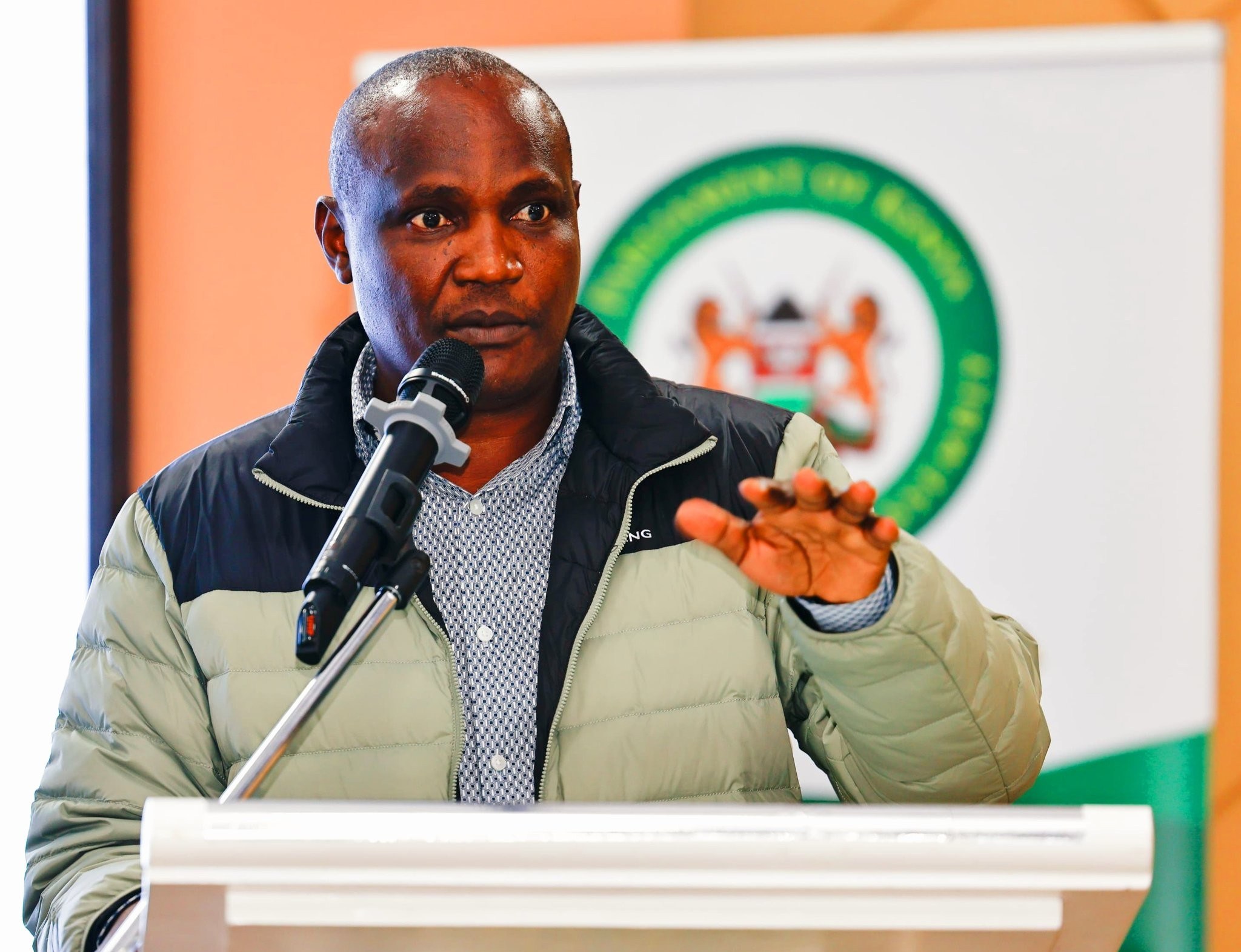Treasury CS Mbadi takes budget consultations to the ground to avoid repeat of Finance Bill protests

Mbadi said the meetings are part of the government’s effort to reconnect with ordinary citizens and seek their views on what should or should not be included in the upcoming financial year’s budget.
In a bid to avert the anti-Finance Bill protests which were held last year, the National Treasury now plans to conduct a series of regional meetings to gather public input on the 2025-2026 budget.
Treasury Cabinet Secretary John Mbadi revealed this plan on Tuesday, emphasising that these meetings will be held in various regions including the Coast, Northern Kenya, Western, and Nyanza.
More To Read
- From detention to global recognition: Rose Njeri named in 2025 Time100 Next list
- How protests over Finance Bill hurt Nairobi’s daily revenue collections
- 16 killed in June 25 memorial protests, most by police – Amnesty International
- We are forgotten: Erickson Mutysia’s mother makes heartbreaking plea for justice
- Ruto government allocates Sh680 million for State House renovation despite budget cuts, public outrage
- Police pledge to protect peaceful protesters during June 25 'Gen Z memorial march'
He noted that the meetings are part of the government’s effort to reconnect with ordinary citizens and seek their views on what should or should not be included in the upcoming financial year’s budget.
Mbadi is expected to present the Budget Policy Statement (BPS) to the National Assembly before February 14, outlining government expenditure for the 2025-2026 financial year, which begins in July.
However, ahead of Parliament’s own public consultations, the CS will personally visit several regions to listen to the concerns of the people, just as he did on Monday at Jevanjee Gardens in Nairobi.
The CS acknowledged that the failure of the government to properly listen to the people was a key reason for the rejection of the 2024-2025 Finance Bill by President William Ruto, following widespread protests led by the youth.
“I will personally attend these informal meetings and listen to the people on the ground on what they want or don’t want included in the next year’s budget. I believe it is part of the disconnect that was missing on the government side on last year’s Finance Bill that was rejected,” Mbadi said.
Following the Nairobi meeting, Mbadi will visit several other regions before concluding with forums in Eastern and Central Kenya. He noted that the dates and venues for the meetings are still being finalised and will be released to regional leaders for planning.
“We want to do things differently this year and part of that includes carrying everyone along at the initial stage of the budget making. As a government, we have no option but to listen to the people,” Mbadi added.
Revision of revenue projections
The Treasury’s strategy also includes a revision of revenue projections to more realistic figures to avoid the strain of attempting to secure funds that aren’t actually available.
“We must have an honest discussion about our revenue projection and make it as realistic as possible. When I meet the budget committee over this, we will discuss it and have a way forward,” he said.
The CS noted that over-projected revenue collections force the government to seek additional funds, putting pressure on tax authorities and potentially increasing taxes.
Recent reports show that the Kenya Revenue Authority (KRA) missed its collection target by Sh163 billion for the first quarter ending December due to the rejection of the Finance Bill 2024. KRA collected Sh1.07 trillion, falling short of the Sh1.23 trillion target set to meet the Sh2.47 trillion goal for the full financial year ending June 2025.
“We have now seen the effect of over-projection of revenue collection. We missed our target in December but I have looked at the January figures and they are looking good,” Mbadi said.
In response to this challenge, he revealed that the Treasury has reduced the overall budget for the 2025-2026 financial year by Sh183 billion to Sh2.835 trillion.
Another key strategy outlined by the CS is reducing reliance on external sources of income and borrowing to finance the budget.
He said the external net financing for the 2024-2025 budget is projected at Sh255 billion, but the Treasury aims to reduce this to Sh213 billion in the 2025-2026 fiscal year.
“We want to reduce the dependence on external sources to finance our budget so that when such funds become scarce, we are not exposed to expensive loans from the International Monetary Fund (IMF) or the World Bank,” he said.
With global financial shifts, such as the new US administration’s stance, Mbadi pointed out that there may be reductions in funding from institutions like the IMF and World Bank, which is why the government must reduce its reliance on such sources.
Further, the Treasury plans to boost the collection of non-tax revenues from Ministries, Departments, and Agencies (MDAs) to ensure adequate funding for government activities.
“Our MDAs just need to be efficient in the collection of the revenue without necessarily raising the fees charged,” Mbadi noted.
The Treasury’s fifth strategy focuses on fiscal discipline, ensuring that expenditure and borrowing are managed carefully to avoid the wastage of public resources.
Speaking during a recent retreat with MPs in Naivasha, Mbadi assured lawmakers that the global economy had stabilised, with growth projected at 3.2 per cent in 2024 and 3.3 per cent in 2025. This, he believes, will positively impact Kenya’s economy.
The CS also reported that the Kenyan shilling has stabilised against the dollar, improving from Sh160.8 in January 2024 to Sh129.4 in January 2025, a development he described as a significant positive shift for the economy.
Top Stories Today













































